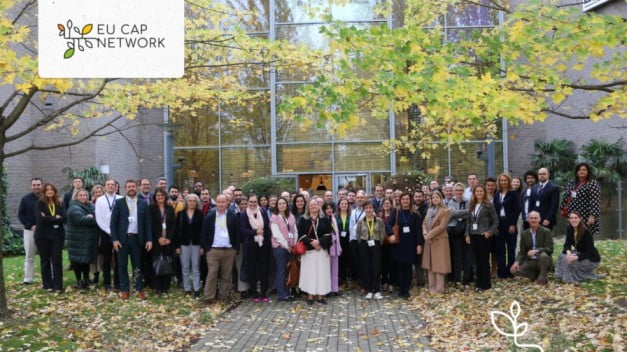The objectives of the BEATLES project, include analysing behavioral insights to develop transformative pathways that encourage a transition to fair, healthy and environmentally friendly food systems. The project aims to accelerate the systemic and systematic shift to climate-smart agriculture and smart farming technologies.
The latest decisions on the use of the herbicide glyphosate have been a focal point for monitoring the development of policy recommendations and the Use Cases of the project.
The use of glyphosate, a widely used chemical substance in agriculture and horticulture, was approved for use in the EU until 15 December 2023. Its use was renewed for 10 years on 16 November 2023.
In 2019, the applicant party, a group of companies called the Glyphosate Renewal Group (GRG), formally applied for the renewal of the approval of glyphosate for use. This application initiated the renewal process, as required by EU legislation.
As required by EU legislation on pesticides, and in line with the Comitology rules, on the absence of a qualified majority in the Appeal Committee, the European Commission is legally obliged to adopt a decision before the expiry of the current approval.
Therefore, on 16 November 2023, during a vote at the Appeal Committee, Member States did not reach a qualified majority on the Commission’s proposal to renew the approval of glyphosate for 10 years. This followed a previous vote at the Standing Committee on Plants, Animals, Food and Feed (SCOPAFF) on 13 October 2023, in which Member States also did not reach the required majority to either renew or reject the proposal. Despite this, the Commission, bound by its obligations, proceeded to renew the use of glyphosate for 10 years.
The controversial nature of glyphosate use has led to much discussion in recent years. While a large amount of information on the active substance glyphosate already exists and has been assessed leading to the conclusion that the approval of the active substance glyphosate should be renewed, additional information on glyphosate is being published at an exceptionally high rate compared to other active substances. Therefore, possibilities of rapid future developments in science and technology should be taken into account when deciding on the length of the approval period of glyphosate, also bearing in mind the fact that glyphosate is one of the most widely used herbicides in the Union. For that, the Commission adopted a renewal of the approval of glyphosate for a period significantly shorter than the maximum possible, namely 10 years.
The proposal for renewal of approval is based on safety assessments carried out by the European Food Safety Authority (EFSA) and the European Chemicals Agency (ECHA), together with the Member States on the impact of glyphosate on the health of humans, animals and the environment.
After the renewal, Member States remain responsible for national authorisation of plant protection products (PPPs) containing glyphosate.
The Commission has included new conditions of use, among which:
- the prohibition for use as a desiccant.
- the setting of maximum limits for 5 impurities in glyphosate.
- the requirement for Member States to pay particular attention to specific aspects when carrying out risk assessments and to set risk mitigation measures.
- the setting of maximum application rates.
- an obligation for the applicant to submit information on the possible indirect impacts on biodiversity within 3 years from the availability of an appropriate guidance document.
The Commission will request EFSA to develop the necessary guidance.
Author: Blanca Casares (AEIDL)


